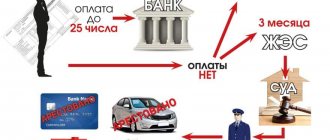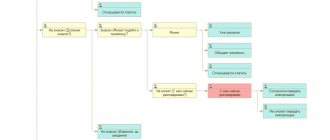The problem of non-payment of utility bills today is very relevant to our realities. Therefore, many are interested in the question of what the possible consequences are if a large debt is accumulated. In particular, is it possible to evict an apartment for debts?
According to the current requirements of the legislative framework of the Russian Federation, eviction of the owner is theoretically allowed only if he lives under the terms of a rental agreement and in the absence of any payment for the services of utility companies (even partial) for at least 6 months.
In practice, the decision to evict a tenant is made in exceptional cases, because at the legislative level the need to provide a person with other housing is also provided for. Usually its area is regulated by the rules for settling into a hostel and is less than 10 square meters. Problems also arise with this, because the reserves of housing space in the possession of municipal services are strictly limited.
Ways to collect debt without eviction
As of today, in accordance with Article 446 of the Code of Civil Procedure of the Russian Federation, it is impossible to evict a person who owns only one apartment. At the same time, in exceptional cases, government authorities may resort to such a decision. In particular, if the violator maliciously does not comply with the rules for paying for utility services and there are no compelling reasons for this.
Dear readers!
Our articles talk about typical ways to resolve legal issues, but each case is unique. If you want to find out how to solve your specific problem, please contact the online consultant form on the right →
It's fast and free!
Or call us by phone (24/7):
If you want to find out how to solve your particular problem, call us by phone. It's fast and free!
+7 Moscow,
Moscow region
+7 Saint Petersburg,
Leningrad region
+7 Regions
(the call is free for all regions of Russia)
If a large debt accumulates and is not paid for at least three months, utility services can:
- Notify the tenant in writing of the need to pay, indicating the deadline for repaying the debt;
- Turn off or limit the use of light, cold water or gas in a room for which no payment is made;
- If the tenant does not agree to an amicable solution to the issue, file a lawsuit demanding forced collection of the amount of the debt.
For what kind of debt is this possible?
According to the law, six months of debt is grounds for eviction from a municipal apartment. But there is a caveat - the debt arose without warning. For example, a tenant can officially send a letter to the utility service , warning about the temporary inability to pay for housing for a valid reason. These include:
- Job loss;
- Poor financial condition;
- Availability of dependents, including minors;
- Serious illness of a family member;
- Incapacity for work of the payer, receipt of disability.
In these cases, the amount of debt is of secondary importance; the courts do not satisfy eviction claims.
For mortgaged apartments, these conditions are important, but to a lesser extent . The law protects unscrupulous borrowers to a lesser extent. For example, the specified Article 446 of the Code of Civil Procedure of the Russian Federation allows eviction from the only residence if it is collateral under a loan agreement.
Based on established practice, courts satisfy claims against unscrupulous borrowers for eviction from an apartment if the amount of debt is 70-80% of its market value. For example, if it is valued by an expert at 3 million rubles, the debt to the bank must be at least 2 million rubles.
Grounds for eviction
The owner may lose his home not only in case of late payment of utility services. This can also be implemented on the following grounds:
- A clear violation of the rules of residence;
- Carrying out redevelopment of premises on illegal grounds and without coordination with government agencies;
- Amoral behavior;
- Deterioration of the condition of the house to emergency conditions and a decision on the need for its demolition.
All these provisions are considered only when documented by employees of the housing cooperative.
You can be evicted from a communal apartment by court decision in the following cases:
- Accommodation without making any payment for six months or more;
- Violation by the tenant of the interests and rights of neighbors in the apartment;
- Using the premises for purposes not provided for by law.
In this case, eviction does not occur without warning. The tenant must discuss with the owners the timing and methods of repaying the debt or eliminating any violations that have arisen. If there is no response to the tenant's comments, the tenant may be forced to evict the tenant in court.
When evicted due to a debt for utilities that has accumulated over a long period of time, the tenant is in any case provided with alternative living space. If he was evicted for one of the other reasons presented above, then other housing is not provided by the state.








